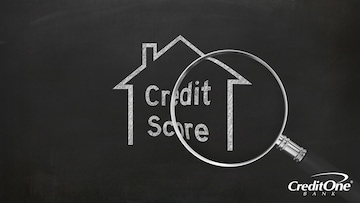
10 Ways To Improve Your Credit Score
October 29, 2025
Having a better credit score can lead to higher credit lines, lower rates, and easier approvals. Here’s 10 ways to improve your credit score.

Introduction
Your credit score affects more aspects of your life than you might think, and raising it can come with a lot of benefits. Doors may open, and suddenly you’re getting access to higher lines of credit with lower interest rates and fees.
So how exactly do you get there? Find out by diving into this list of 10 tips to help you improve your credit score.
Understand Your Credit
Understanding is a valuable first step, so here we go. Creditors keep track of whether or not you make your payments on time, and report that activity to one of more of the three credit bureaus — Experian, Equifax and TransUnion. Those agencies compile that data into credit reports. And then FICO and VantageScore take that information and assign a credit score, based on different criteria that they’ve decided is most important.
This might seem complicated at first, but it gets simpler once you understand the basics of how credit works.
Credit is more than just a plastic card you use to buy things. It can also refer to your credit history, or your credit score. All three of these aspects are related, but not the same thing. The phrasing people use can give you a hint as to which piece of the puzzle they mean.
“Paying with credit” means using your card for purchasing something while “access to credit” could mean qualifying for a credit card or a loan. “Building your credit” usually refers to your credit history, which makes up a major part of your credit report contents. And “improving your credit” could be about your credit history, but it usually means your credit score. When people talk about “bad credit” or “good credit,” that almost always means your score.
Having good credit means that you’re seen as financially trustworthy and a good candidate for a loan or line of credit. On the flip side, bad credit (or poor credit) can be a problem. It usually comes from making payments late or borrowing too much money, and it means that you might have trouble getting a car loan, a credit card, a place to live, and sometimes even a job.
Know What Creditors Look For
Most creditors use credit scoring to evaluate whether to approve your application, and with what terms. Since that number is calculated from your credit report information, it’s influenced by your outstanding debt, bill-paying history, the number and types of accounts you have, and how long you’ve had them. This helps potential lenders predict whether or not you’re a good risk to repay a loan on time.
So to boil it down into simple terms, creditors want to know that you pay on time, don’t use too much credit, and can manage various credit accounts effectively over time.
Get a Copy of Your Credit Report
Your credit report lets you see what lenders see and identify any red flags or errors in your credit history.
The Fair Credit Reporting Act (FCRA) requires each of the three major credit bureaus to give you access to a free copy of your credit report once a year. However, you can now order your free credit reports weekly at the federally authorized AnnualCreditReport.com.
Look through each report and check for any mistakes. If you find any, you can dispute the errors with the corresponding credit bureau. If everything’s correct, check for areas of potential improvement, like high balances, missed payments, or any other negative line items.
Read the Fine Print
Once you know where you stand, you can not only fix it — but also target new credit acquisition that aligns with your credit history. You usually need at least one credit card to build a positive credit history, so if you don’t currently have one, this is a good time to start the search. Just make sure you’re strategic about it.
It’s important to shop around because fees, charges, interest rates, and benefits can vary drastically among credit card issuers and products. Then read the fine print and disclosures to understand what you’re signing up for.
A great starting point is scanning the terms and conditions for the following details.
Annual percentage rate (APR): The APR measures the cost of credit, expressed as a yearly interest rate. The lower the APR, the less you have to pay when carrying a balance. Look for introductory offers with a lower APR, but check the fine print to see what your rate will be after the promotional period.
Grace period: Most credit cards give you a window after purchasing something where you can pay your credit card bill without being charged interest. That grace period is usually 21 to 26 days — after that, you’ll start accruing interest on any unpaid amount.
Annual fees: Many credit cards come with an annual fee. Others also include an account maintenance fee on top of that, which is listed in a different place. Generally speaking, an annual fee can be worth it if the benefits outweigh the cost.
Transaction fees and other charges: Creditors typically charge a late fee if you don’t make a payment on time. Other common credit card fees include cash advance fees and balance transfer fees. Over-limit fees used to be common, but these days it’s a rare service that you have to opt in for if you don’t want your card declined. Some credit cards also implement a penalty APR if you max out your card.
Some of these aspects might not seem directly related to your credit score. But they can affect what you owe and what you’ll pay for the privilege of having credit. And if any of that causes your debt to spiral out of control, it will affect your credit score.
Focus on Your Credit Track Record
Many young adults, or immigrants from another country, have little or no credit history. This can make it tough to get a loan or credit card, but establishing a strong credit history isn’t as complex as it seems.
Apply for a store credit card because retailers often have lower barriers to entry.
Get a secured credit card, which requires a security deposit for collateral — but then acts the same as any other credit card.
Ask someone to cosign on a loan, which means they’re agreeing to pay it back if you don’t.
Once you establish a pattern of making your payments on time, major credit card issuers and lenders will likely be more willing to approve you for credit.
If you’re still running into roadblocks, you’re not alone. A lot of people spend more than they can afford and pay less toward their debts than they should. But a few proven tips can help.
Budgeting: Design and stick to a budget that keeps your debt under control. You can choose what works for you, like a 70/20/10 budgeting model. But basically you’ll need to figure out what’s coming in and going out so you can comfortably pay off your debts and save for the future.
Credit counseling: Many universities, military bases, credit unions, and housing authorities operate non-profit financial counseling programs. The right organization can help you draft a plan to stay on track, but be sure to ask about any fees and what you’ll receive in turn
- Contacting creditors: If you’re having trouble paying your bills, contact your creditors immediately. You may be able to work out a modified payment plan that’s easier to manage without falling further behind.
Automate Your Finances
We’re all busy these days, and it’s easy to forget a bunch of random dates and deadlines if you don’t keep track. Logging them all in your calendar is one solution. But even better is letting technology take care of it for you by automating your finances.
That includes setting up AutoPay so you’re never late, as well as activating notifications and alerts to stay informed. Automatic transfers to a savings account can also help your overall financial health.
Prioritize On-Time Payments
Paying on time, every time, is the most important thing you can do for your finances. It’s the biggest factor in calculating your credit score, regardless of which scoring model we’re talking about.
Your payment history includes your on-time payments of minimum amounts and full balances, your late and missed payments, and any charged-off accounts. If you often pay late or miss payments, your credit score will very likely be much lower than someone who always pays on time. Charge-offs look even worse because they typically mean you didn’t pay for a full six months.
Avoid Using Too Much Credit
This one’s a surprise to most people who hear it for the first time, but you’re not supposed to use all of your available credit. In fact, if you want to improve your credit score, you should only use 30% or less of your credit line. No, that’s not a typo.
The amount of your credit being used at any given time is your credit utilization ratio. Maxing out your cards, or even using half of your credit line, can make you look too reliant on credit — which can lower your score. So if you want to improve your credit score, be really cautious about how much credit you use — or rather, don’t use.
Strategically Mix it Up
Credit comes in different types — and having more than one contributes to a robust “credit mix.” That can boost your credit score because it proves that you can manage a variety of accounts.
The two main types you’ll encounter are revolving credit and installment credit. “Revolving” refers to credit cards and lines of credit, because once you pay it down, you can use that available credit again. “Installment” refers to loans and mortgages, because you pay them off in installments and then they’re done.
That doesn’t mean you should go out and get a loan just to diversify your credit mix. But if you have both loans and credit cards, paying them all on time will likely help your score.
Protect Your Identity
Identity theft involves someone else using your personal information to create fraudulent accounts in your name, charge items to your existing accounts, or steal your money. All of that can destroy your credit and wreak havoc on your entire life. But protecting your personal information can minimize that risk.
Don’t give out personal details over the phone, through the mail, or online unless you’ve initiated the contact and know who you’re dealing with.
Create secure passwords for your credit card, bank, and utility accounts. Avoid using easily available information or setting up the same password on multiple accounts.
Carry only the identification you need, which almost never includes your Social Security card. Instead, leave it in a secure place at home and only give out your Social Security number when absolutely necessary.
Guard your mail from theft by depositing outgoing mail in post office collection boxes and promptly removing mail from your mailbox after it’s been delivered.
Shred documents with sensitive information on it like credit offers, old insurance forms, bank statements you don’t need, and expired credit cards.
- Report lost or stolen wallets or ID to the local police, and any stolen credit cards to the creditor. The sooner the better for both of these.
If you become a victim of identity theft despite your best efforts, report the crime to the Federal Trade Commission at IdentityTheft.gov or 1-877-ID-THEFT.
Bottom Line
Having a good credit score can make life better. And if you’re not there yet, finding opportunities to improve that number is relatively simple. Not necessarily easy — but simple.
One of the key ingredients for improving your credit score is having a credit card, and then using it conservatively and always paying on time. If you need one in your financial toolbox, don’t forget to shop around for the right fit. And then always see if you pre-qualify, which doesn’t impact your credit score.
Heather is an accomplished writer and editor in the financial and business industries, with expertise in credit building, investments, cryptocurrency, entrepreneurship, and thought leadership. She loves investigating and pulling apart complicated topics to make them simple, engaging, and easy to understand. But she also enjoys writing about the personal side of life, including self-help, creativity, relationships, families, and pets. She approaches everything from a yin-yang perspective, so her passion for wordplay and metaphors is always balanced with an intense focus on accuracy. Heather has a BFA in Visual Arts from York University, and has worked as a journalist in all media: TV, radio, print, and online.



